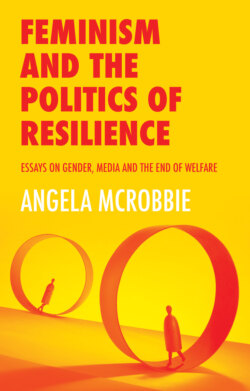Читать книгу Feminism and the Politics of 'Resilience' - Angela McRobbie - Страница 7
Notes
Оглавление1 I draw loosely on Foucault and Wendy Brown here, understanding neoliberalism as a form of governmental rationality, which, coming forward to pervade the UK polity in the Thatcher years, applies the rules of the market to the major social institutions of Western capitalist society, urging privatization of state assets (Foucault 2006; Brown 2015). This ethos is also concerned with bodies and populations who are encouraged not just to envisage themselves as human capital but also to develop an entrepreneurial attitude towards the self, which means bolstering personal conduct so as to maximize assets and audit the self with the help of various monitoring devices designed to enhance competitiveness. Neoliberalism sweeps across the terrain previously associated with social democracy, including welfare, organized labour, education and social care sectors, stripping them bare and proposing instead various entrepreneurial, innovation and leadership programmes. 2 I take my lead here regarding the definition of popular culture, rather loosely reworking both Stuart Hall and Raymond Williams, as symbolic practices, which retain vernacular elements of belonging and identity from subordinate social groups, classes and minorities, while at the same time providing fertile ground for the global entertainment and media industries able to extract and leverage maximum value from seemingly authentic affective and emotional expressions and investments. The formal qualities of popular culture are massified and commodified. Participation is managed and calibrated through algorithmic demographics of audiences, populations, participants, users or consumers. Little remains of potential for struggle, posing new challenges to scholars of ‘pop culture’. 3 Aired through February and March 2019. 4 The popular Victorian image of the ideal wife/mother came to be known as the ‘angel in the house’. She was expected to be devoted and submissive to her husband, while creating a beautiful home, so that he would have no reason to seek pleasures elsewhere. 5 Here we might point to the increasing privatization of housing and play spaces in the London property market. Attention has been drawn to the phenomenon of the ‘poor door’ in developments where social tenants are forced to enter the building through an unlit alleyway back door and without the trappings of a well-designed entrance hall. More recently, groups of women have revealed playground rules that bar the children of social tenants from the bigger and well-planned space allocated for the children of those who own properties in these new-build developments.
